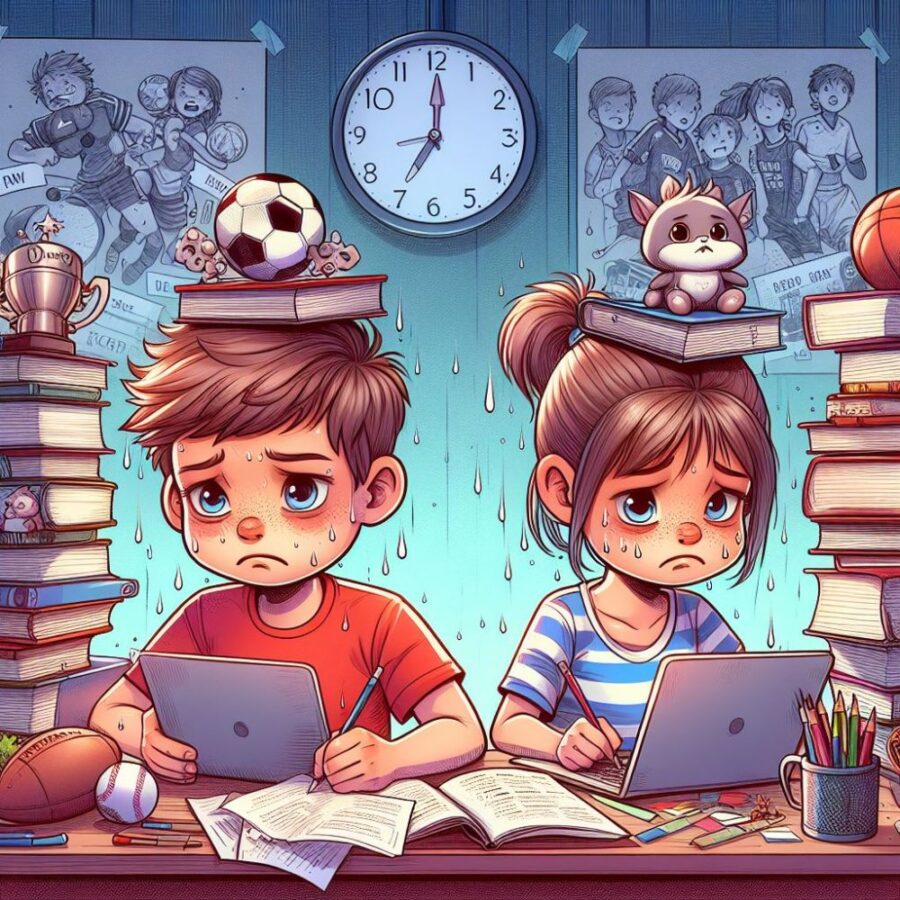Wealth is often seen as a golden ticket to a life of luxury, success, and happiness. However, this is not always the case, especially for children born into wealthy families. Despite their material abundance, many of these children struggle with mental health and happiness.
Here are 15 reasons why this paradox exists:
1. High Expectations
Wealthy kids often grow up in environments where excellence is not just encouraged but expected, leading to immense pressure in academics, sports, and social standing. This constant push to excel can create a fear of failure, where children feel they are never good enough. The stress and anxiety from these expectations can lead to mental health issues like depression and anxiety disorders.
2. Lack of Genuine Relationships
Children from affluent families may struggle to discern if friendships are formed for genuine reasons or the benefits of their wealth. This skepticism can lead to loneliness and difficulty in forming deep, trusting relationships. The lack of genuine connections can contribute to feelings of isolation and low self-esteem.
3. Limited Life Skills
In many wealthy households, children are provided with everything they need and more, which can impede the development of basic life skills. Without the need to work for things, they might lack problem-solving skills and resilience when faced with challenges. This over-reliance on family wealth can lead to helplessness and incompetence in adulthood.
4. Isolation
The exclusive lifestyles of the wealthy can create a bubble that isolates these kids from the real-world experiences and struggles of others. This isolation can lead to a lack of empathy and understanding of broader societal issues. It also deprives them of diverse experiences that are crucial for well-rounded character development.
5. Identity Issues
Wealthy children often grapple with their identity, feeling overshadowed by their family’s wealth. They may struggle to establish a sense of self that is independent of their financial status. This struggle can lead to issues with self-worth and difficulty in finding personal fulfillment.
6. Pressure to Uphold Family Image
In affluent families, there is often an unspoken expectation to maintain a certain social image, which can be overwhelming. Kids may feel they have to live up to the legacy of their parents or ancestors, limiting their freedom to explore their true interests. This pressure can lead to a lack of authenticity and personal unhappiness.
7. Guilt and Embarrassment
Children from wealthy backgrounds can experience guilt over their unearned privilege, especially when confronted with societal inequalities. They might also feel embarrassed or out of place in situations where their wealth sets them apart from their peers. These feelings can lead to social withdrawal and a distorted sense of self-worth.
8. Lack of Motivation
With financial security assured, finding intrinsic motivation and drive can be challenging for wealthy kids. The absence of financial struggles, which often drive ambition, can result in a lack of direction and purpose. This lack of motivation can lead to a sense of aimlessness and dissatisfaction with life.
9. Parental Absence
Wealth often comes with demanding careers or businesses, leading to parents being physically or emotionally unavailable. This lack of parental involvement can leave children feeling neglected and seeking attention in unhealthy ways. The absence of a nurturing environment can lead to emotional and behavioral issues.
10. Substance Abuse
Easy access to financial resources can lead to early and sometimes excessive experimentation with drugs and alcohol. This exposure can escalate into addiction, as these substances are often used as coping mechanisms for underlying issues. The culture of affluence can sometimes normalize such behaviors, exacerbating the problem.
11. Mental Health Stigma
In many wealthy communities, there is a stigma around mental health issues, which are often seen as a sign of weakness. This stigma can prevent children from seeking the help they need, leading to untreated mental health conditions. The emphasis on maintaining a perfect facade can exacerbate feelings of loneliness and despair.
12. Unrealistic Standards of Perfection
The pursuit of perfection in everything from physical appearance to social status is prevalent in affluent circles. This relentless drive for perfection can lead to chronic dissatisfaction, self-critical thoughts, and mental health issues like anxiety and depression. The constant comparison with others in similar affluent circles can intensify these feelings.
13. Fear of Losing Wealth
For those in families where wealth is a relatively new phenomenon, there can be an underlying fear of losing it. This fear can lead to anxiety and stress, especially in unstable economic times. It can also create a hyper-focus on material wealth at the expense of personal happiness and relationships.
14. Lack of Fulfillment
Continually focusing on material success and accumulation often leads to a lack of fulfillment. Wealthy kids may find that material possessions and status do not bring lasting happiness. This realization can lead to an existential crisis, as they search for deeper meaning and purpose in life.
15. Neglecting Personal Passions
In the race to meet family expectations and maintain social status, personal passions, and talents are often neglected. This neglect can lead to a loss of identity and a sense of regret later in life. Encouraging children to pursue their true interests is vital for their mental well-being and personal growth.
Unhappy Wealthy Kids
While wealth can provide opportunities, it also brings unique challenges, especially for the younger generation. Parents, educators, and society as a whole must acknowledge these issues and provide the support and understanding needed to help wealthy children lead more balanced, happy, and fulfilling lives.
Tamila McDonald is a U.S. Army veteran with 20 years of service, including five years as a military financial advisor. After retiring from the Army, she spent eight years as an AFCPE-certified personal financial advisor for wounded warriors and their families. Now she writes about personal finance and benefits programs for numerous financial websites.
















